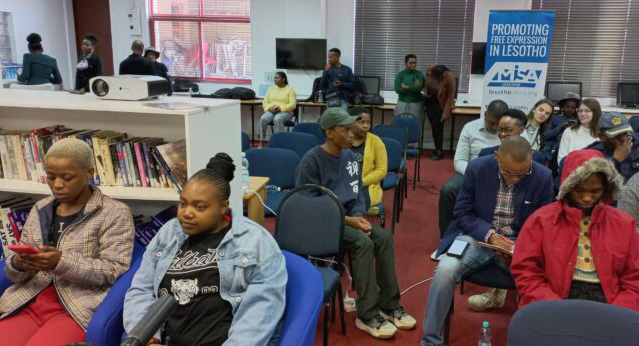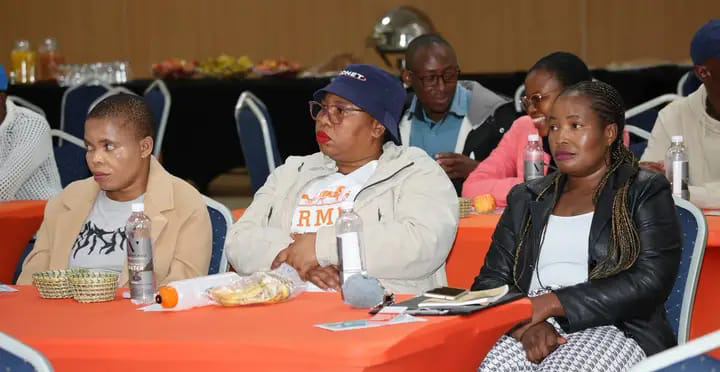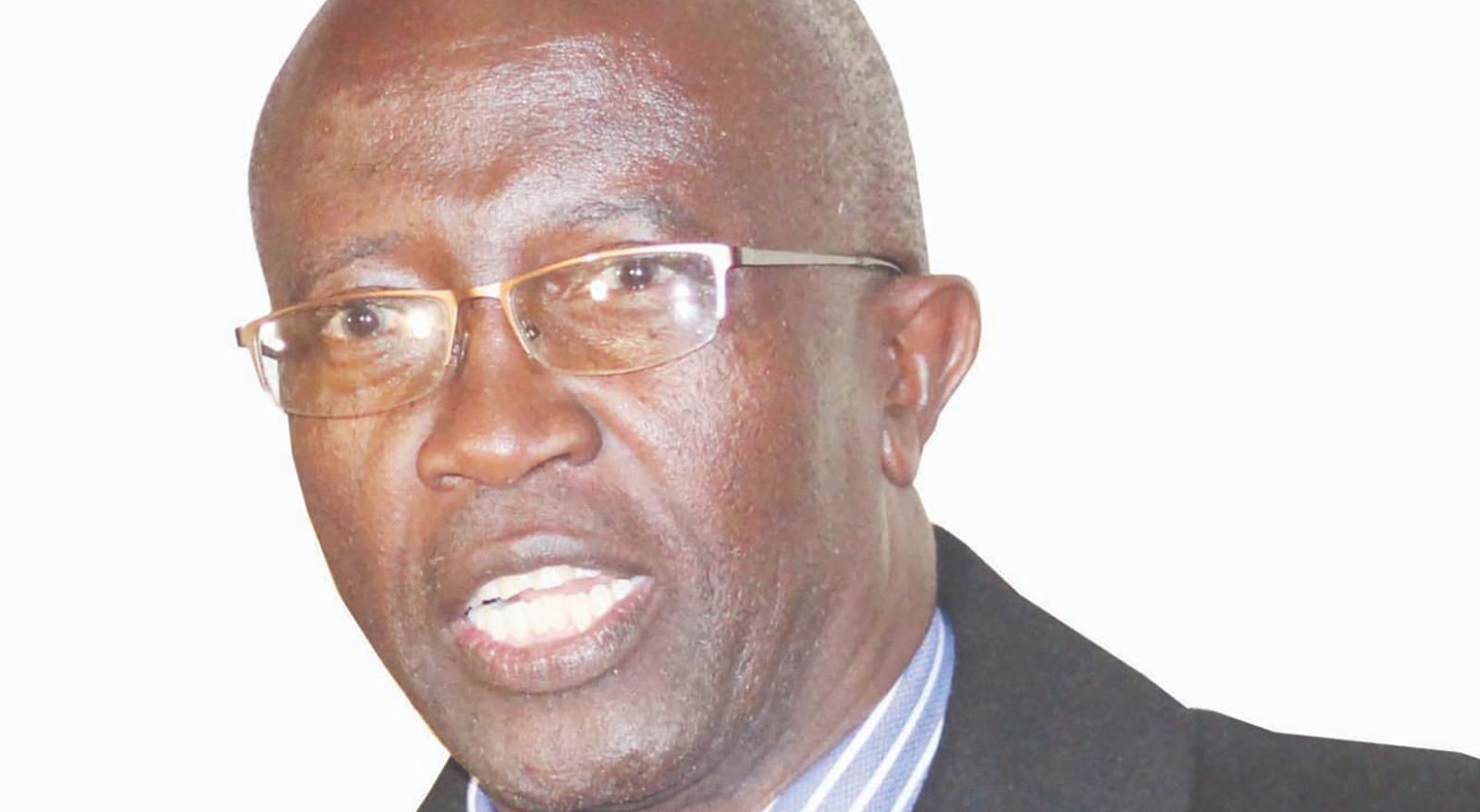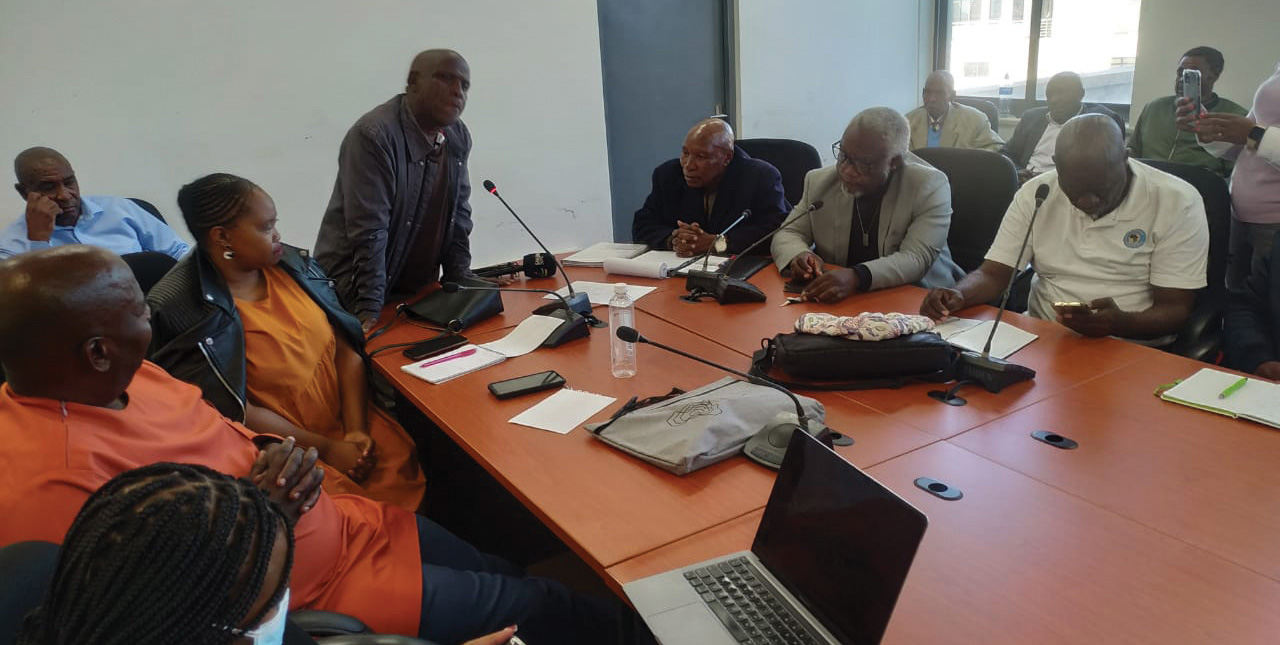Security agencies defy Ombudsman

SHARE THIS PAGE!
‘Mantšali Phakoana
State security agencies are among the government institutions most notorious for reluctance to implement recommendations by the Ombudsman’s office to address abuses against innocent citizens.
Human rights defenders and governance experts alike say this big-headedness by government institutions grossly violates victims’ rights and shows lack of commitment to protect and promote such rights.
These remarks come after the Ombudsman, Advocate Tlotliso Polaki, recently made a passionate appeal to parliament to endorse her recommendations for the Lesotho Defence Force (LDF) to compensate two families whose bread winners were killed by soldiers on different occasions in 2014 and 2020.
The Ombudsman’s office has over the years issued numerous recommendations to address human rights violations by security agencies, but authorities failed to act on them, raising serious concerns about lack of accountability.
Victims of alleged abuses by the LDF, Lesotho Mounted Police Service (LMPS), and the Lesotho Correctional Service (LCS) are still awaiting justice.
In an interview with theReporter, governance experts and human rights defenders highlighted that such situations should not be allowed to go on.
They insisted that it is high time parliament enacts laws that criminalise non-compliance of authorities to the Ombudman’s recommendations.
Seinoli Legal Centre human rights defender, Advocate Moeketsi Lepeli said lack of binding powers of Ombudsman as provided the law weakens the powers of the office of the Ombudsman.
Adv Lepeli noted that although Lesotho has ratified international human rights treaties but there is still lack of government commitment to domesticate such treaties in respect to human rights.
“This can be proved by the fact that there are no laws that criminalise acts of torture in the country. Secondly, our institutions have been weakened intentionally by politicians by denying them power to hold government accountable for human rights violations.
“The state has an obligation to act when its agencies or institutions do not comply with the Ombudsman’s recommendations. It should hold such institutions accountable. As a matter of fact, the Ombudsman cannot recommend, only to be taken for granted. They should be binding,” he indicated.
Adv Lepeli said the Ombudsman’s powers should be incorporated under the institutional reforms.
A lecturer in the department of political and administration studies at the National University of Lesotho, Dr Pulane Mahase, shared the same sentiments.
Dr Mahase said the Ombudsman’s office is intentionally denied powers, thereby rendering it weak.
She also noted that parliament’s commitment and desire to pass the Omnibus bill could do away with perceptions by some state institutions that the Ombudsman’s office “is a toothless dog.”
“The fact that there are no laws legalising the recommendations of the Ombudsman make it easier for the government agencies to overlook the powers the office has.
“It is through political commitment or desire that this could be rectified. Parliamentarians are politicians, and public institutions such as the office of the Ombudsman implement policies made by the same politicians. There is no way we can separate politicians and public institutions like the Ombudsman’s office; they complement each other. It would not be appropriate to have established this institution if it does not serve its purpose.
“Political will is very important. Parliament should enact laws bestowing the Ombudsman with more powers. Failure to do so will mean the office is not being responsive to Basotho’s needs and as a result, the public will lose their trust in it,” Dr Mahase said.
The non-decentralisation of the Ombudsman office was also a cause for concern as it makes the public question if it really performs its duties effectively and also in time.
Advocate Polaki has ordered LDF commander, Lieutenant General Mojalefa Letsoela to pay the Tang family M300 000 as compensation for the May 2014 negligent killing of their daughter, Lisebo Tang on May, 9, 2014.
She has also ordered the army boss to pay compensation of M423, 805. 39 to minor children; Tholoana and Mosa Molapo in respect of loss of support following the death of their father, Molapo Molapo of Peka Leribe on December, 5 2020.
But, none of the recommendations were implemented.
In her special report to the parliament, dated March 27, 2024 Adv Polaki indicated that a soldier allegedly had a physical altercation with Molapo who allegedly went on to disarm the LDF member.
The soldier requested backup from his colleagues stationed at Mokotakoti at Hleoheng. The soldiers pursued the deceased and found him hiding in his home and one of them shot him dead.
Adv Polaki said the deceased was a breadwinner and part time contractor undertaking various jobs including installation of ceilings and masonry.
At the time of his death, Molapo had two minor children who were still at school and an elderly father who was no longer working and could not provide adequate care to the minors.
The children, both girls, Tholoana now aged 20 and Mosa aged 17, had to change schools as their grandfather, a pensioner, could not provide for their maintenance and school fees following the demise of their father.
Adv Polaki says the report she received from the elderly father, Thabo Molapo, was that the LDF conceded one of their officers had killed his son while on duty on December, 5 2020 in Peka and that he had been subjected to internal disciplinary processes.
“LDF officials and the then minister of defence (Prince Maliehe) came to pay their respects at his home. He (Thabo) further alleged that the minister made undertakings to the family which, inter alia, included that the LDF would pay for the deceased children’s school fees and employ one of the deceased’s family members so that such person could cater for the needs of the deceased’s children going forward.
“He (Thabo) indicated, in his complaint, that this never materialised and he further sought clarification from the minister’s office and the Commander of the LDF. He was informed that the undertakings were not implementable and were made by the minister at the time just to placate the family,” the report reveals.
Similarly, Adv Polaki said the LDF refused to compensate the Molapo family, citing that it would amount to an admission of guilt while a criminal case against the said soldier was still pending before the courts.
“The Ombudsman came to a conclusion that the LDF is liable to compensate the deceased Molapo’s children and father, Thabo Molapo, for their loss following the death of his son, as a result of the LDF army officer’s negligence or wrongdoing. I have also come to the conclusion that the complainant and children suffered an injustice that warranted the Ombudsman’s intervention and redress.
“The LDF is ordered to pay compensation to the minor children (Tholoana and Mosa Molapo) in respect of loss of support following the death of their father.
“LDF is to compensate the dependants of the deceased Molapo Molapo to the sum of M423 805.39, within three months from the date of delivery of this determination.
“I appeal to the house (parliament) to endorse the recommendations by the Ombudsman in this matter. The LDF has been silent despite several attempts by the Office of the Ombudsman to resolve this matter in an amicable manner,” Adv Polaki noted.Bottom of Form
In another incident, Adv Polaki indicated that soldiers guarding the home of then LDF commander, Tlali Kamoli, shot Tang and her boyfriend, Tšepo Jane, when the couple had parked their vehicle near Kamoli’s residence at Ha Leqele 10 years ago.
She revealed that the soldiers sprayed the vehicle with a volley of bullets, claiming they had suspected that it posed a security threat to Kamoli.
According to Adv Polaki, Jane survived death by a whisker while Tang was declared dead upon arrival at Makoanyane Military Hospital.
Two soldiers; Corporal Tjekane Sebolai and Private Selone Ratšiu, are currently standing trial before Chief Justice Sakoane Sakoane for Tang’s murder. They are also facing charges of the attempted murder of Jane as well as malicious damage to his vehicle.
According to her report, Tang was the breadwinner in the family, supporting her mother and paying for her daughter’s school fees from her M2000 monthly salary. The deceased’s daughter is now in Grade 6 and her school fees has escalated to M3200 annually.
Following the incident, LDF officials had a meeting with the Tang family and committed to pay her burial costs. They further committed to provide the family with groceries and school fees for the deceased’s daughter. However, the army ceased to provide the groceries and school fees around 2018.
The deceased’s mother, Makhola Tang, then approached the Office of the Ombudsman for intervention.
In her report, the Ombudsman said the LDF was correct in withdrawing such benefits in the absence of a clear policy guideline or order to continue to offer such benefits or advantage. However, she (Makhola) should have been consulted first as the decision was prejudicial to her interests.
“The LDF also refused to entertain complainant’s plea for compensation because there is a criminal case pending in court and they felt that it will be an admission of guilt on their part if they compensate the complainant.
“The criminal proceedings against the two army officers remain pending and the outcome is awaited. The Ombudsman’s view grounded in the law is that a civil claim for pecuniary compensation lodged is not dependent on the criminal proceedings running at the same time,” she pointed out.
The Ombudsman found the LDF liable for the death of Ms Tang and ordered it to pay damages in the amount of M300 000. At the time of her killing, she was employed at Pick ‘n Pay Supermarket in Maseru as a cleaner, on a monthly salary of M2000.
“The Ombudsman came to a conclusion that the LDF is vicariously liable to compensate the complainant, Makhalo Tang, for the death of her daughter, Lisebo Tang, as a result of the LDF army officers’ negligence or wrongdoing.
“The LDF is ordered to pay compensation to the complainant, Makhalo Tang, for the negligent death of her daughter, Lisebo Tang, in the amount of M300 000 as a reasonable and justifiable redress for loss of support. The payment should be made within three months from the date of delivery of this determination,” Adv Polaki said in her report.
During her recent press conference, Adv Polaki said unlike a court, the Ombudsman does not have the authority to make legally binding decisions. It does only investigate complaints and recommend remedies.
She added they were hopeful that parliament will pass the Omnibus Bill to enable the review of the Ombudsman’s functions to the extent that its recommendations are made binding. This would help eliminate delays in the administration of justice.
“Binding the Ombudsman’s recommendations is vital as currently different stakeholders take advantage that they don’t have binding force,” said Adv Polaki.



Fuel prices go down
4 days ago



WASCO launches GMWSP
8 days ago
SECTION 2 calls for labour law amendment
9 days ago

Thousands of ex-miners remain untraceable
9 days ago